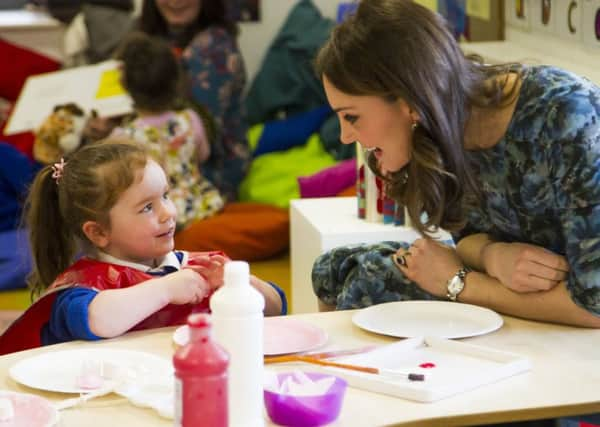Simon Benn: Happiness is the key to mental health


The recent announcement of an additional £300m investment in mental health services for schools is very welcome, but the average primary school will only receive a half day’s training this year which, I fear, will result in precisely no change whatsoever.
Discussing the Government’s investment, Jeremy Hunt, the Health Secretary, said: “Around half of all mental illness starts before the age of 14 so, it is vital children get support as soon as they need it – in the classroom. If we catch mental ill-health early we can treat it and stop it turning into something more serious.”
Advertisement
Hide AdAdvertisement
Hide AdI agree Mr Hunt. The question is how do we treat it? There is no best practice or national programme of teaching emotional wellbeing. The scope of ‘mental health’ is wide, but what we do know is acute mental health issues are on the rise and no one seems to be doing anything meaningful to tackle them.
As a society, we don’t really understand how to nurture our mental health. We know what we need to do to stay physically healthy. We also know that exercise releases endorphins that can help us stay in shape mentally.
But there is a lot more we can do. Ask any adult ‘what makes you happy?’ It will be the wrong question. What do I mean by that? Well, we often pay lip service to the fact that money doesn’t make us happy – yet we’re all still chasing it. It might be a new car, a boyfriend or girlfriend, that super holiday, the new house… whatever – none of these things will result in happiness. I didn’t know this this myself for a long time.
Consequently, our young people grow up with these same expectations. And they’re wrong. We need to provide our children with the knowledge and education they need to take responsibility for their own happines – no one is really doing this.
Advertisement
Hide AdAdvertisement
Hide AdParents’ biggest fear for their children is their future happiness, and this is followed a close second by bullying. As the issue of mental wellbeing in children is pushed to the top of the media agenda this week thanks to Children’s Mental Health Week, it’s time to look at positive action that breeds results.
Unfortunately, when a child suffers from poor mental health, such as low self-esteem, negative thoughts, low moods and depression, it can go completely unnoticed or be seen as a ‘phase’. It’s not until children get to an acute stage that anything is done – and this can lead to mental health issues throughout a person’s life.
In part, this is because as parents we don’t know how to ‘fix’ the problem. We know to give paracetamol for a temperature, to apply pressure to a deep cut before getting stitches, but we don’t really know how to help our children’s wellbeing.
Symptoms can be vague, such as not sleeping well, not eating, eating too much, spending too much time in their room etc. All of which, when taken individually, can be seen as ‘normal’ childhood behaviour.
Advertisement
Hide AdAdvertisement
Hide AdAs a society we need realise that feelings are an inside job. They come from our thoughts, not our environment. If we understand this, we can take control of our emotional welfare. Suddenly, mental health isn’t all about a chemical imbalance or something that just happens to you. You can be in control of how you feel.
As the UK’s first (and only) dedicated Children’s Happiness Coach, I use a mindset metaphor called The Juicer – The Fantastic Feeling Machine. I get children aged from seven to 11 to play games and take part in activities that empower them to boost their mental health and emotional wellness. This helps them be happier, more confident and resilient to bullying.
Prevention is absolutely better than cure. Providing our kids with the power to be happy is an essential life skill that will support them through their adult life.
We already know we have a problem. I’m saying that teaching happiness is one way to start tackling it – for the benefit of our kids, our society and our futures.
Advertisement
Hide AdAdvertisement
Hide AdSimon Benn, from Yorkshire, is the UK’s first Children’s Happiness Coach and has already helped over 1,000 youngsters aged seven to 11 be happier, more confident and resilient to bullying. Further details, and resources, can be found at www.simonbenn.co.uk.